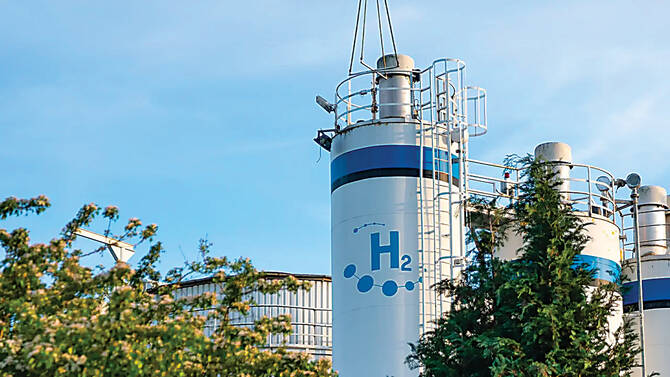RIYADH: The Middle East and North Africa witnessed several funding rounds for startups in the past week, with firms across multiple industries eyeing geographical expansion.
The strong momentum in funding follows the trend observed in May, when startups throughout the region secured $289 million across 44 deals, marking a 25 percent rise from April and a 2 percent increase year on year.
In the past week, most of the fundraising rounds happened in the technological sector, an indication of the region’s evolving digital landscape.
Payrails raises $32 million
Berlin-based payment software company Payrails has raised $32 million in a Series A funding round led by HV Capital’s Growth Fund, with strong participation from existing investors EQT Ventures, General Catalyst, and Andreessen Horowitz, bringing total funding raised to over $52.8 million.
In a press statement, the company said that the fresh funding is expected to support the company’s product innovation, product roadmap expansion, and commercial growth across Europe and the MENA region.
“We are grateful for the trust our customers and investors have placed in us. Their continued support fuels our vision of empowering enterprises with an all-in-one platform to manage every aspect of payments, unlocking new levels of performance and innovation while driving down complexity and costs,” said Orkhan Abdullayev, co-founder and CEO of Payrails.
“With this funding, we are doubling down on product development to expand our multi-product platform across the entire payment lifecycle. Our payment operating system is setting a new industry standard for how enterprises manage and optimize payments,” he added.
With the fresh capital, Payrails will also expand its all-in-one platform with new products across the payment lifecycle, from acceptance to payouts.
Qanooni raises $2m to transform workflows
UAE-based legal startup Qanooni has raised $2 million in a pre-seeding funding round led by Village Global, Salica Investments, TA Ventures, and several angel investors.
With the new financial assistance, the company seeks to support its team expansion and operations in the UAE and the UK. Through the funding, Qanooni also aims to further modernize legal operations by introducing a range of new tools, including end-to-end agentic workflows and deeper platform customization.

Orkhan Abdullayev and Emre Talay’s Payrails raised $32 million in a series A funding round. (Supplied)
Founded by Anuscha Iqbal, Ziyaad Ahmed, and Karim Shiyab, the company integrates directly into the software that lawyers mainly use during work, eliminating the friction of switching platforms or adopting new workflows.
The tools offered by Qanooni help law companies draft and produce documents faster and more accurately, while also making use of generative artificial intelligence that mimics a lawyer’s tone and writing style, which complies with international standards.
Hydrogen Utopia raises $339,000
UK-based Hydrogen Utopia raised $339,000 to expand its waste-to-hydrogen technology in the MENA region.
Using the fund, the company plans to buy 10 exclusive licenses that give it the right to use InEnTec’s waste-to-hydrogen technology, which will help the firm carry out its operations in the region.
Founded by Aleksandra Binkowska, the company specializes in transforming non-recyclable mixed waste plastic into hydrogen and other emission-free energy sources.
Salus Cloud raises $3.7m in expansion push
Salus Cloud, an African-based AI-native DevOps platform, raised $3.7 million in seed funding to scale its operations across the Middle East and Africa.
The fund round was led by Atlantica Ventures and P1 Ventures, while it also witnessed the participation of Idris Bello of Lofty Inc. Capital and angel investor Timothy Chen of Essence VC.
Through the funding, the company aims to address a crucial issue in the world of technology, including access to secure, automated software deployment tools.
With the newly acquired financial assistance, Salus also plans to support its customer base growth across Africa, the Middle East, and underserved tech ecosystems, as well as build partnerships with developer communities and tech hubs.
VenueX raises $1.2 million
VenueX, an Istanbul-based AI startup, closed a $1.2 million bridge investment round, led by Singapore-based Orbit Startups. The investment is expected to support the company’s aim to expand its operations to Saudi Arabia and the UAE.
VenueX is also planning to expand its presence in Dubai and Riyadh with new offices, while also creating a sales team in both cities. Founded in 2022, VenueX enables retail brands to manage their digital advertising on all platforms through a unified interface.
Orange Middle East and Africa partners with risingSUD
Multi-service operator Orange Middle East and Africa has signed a strategic partnership agreement with risingSUD to support the establishment and growth of African start-ups in the Orange Digital Center network in the Provence-Alpes-Cote d’Azur region, in the south of France.
RisingSUD is the economic development agency in charge of attracting projects, investment, and talent to the area.
According to a press statement, the three-year partnership aims to bring together innovation ecosystems in Africa, the Middle East, and the South of France.
With this partnership, OMEA strengthens its support for the internationalization of start-ups from Africa and the Middle East and reaffirms its commitment to developing the continent’s entrepreneurial ecosystems.
The partnership will also allow more start-ups from MEA to benefit from risingSUD’s expertise, ranging from project development to access to financing and networking with international partners.
“By facilitating their establishment and acceleration in France, particularly in the south region, we are giving young African companies the means to accelerate their growth,” said Jerome Henique, CEO of Orange Middle East and Africa.
“This partnership opens up new economic opportunities and constitutes a real springboard for the development of businesses on both sides of the Mediterranean,” said Bernard Kleynhoff, president of risingSUD and president of the Economic and Digital Development, Industry, Export, Attractiveness and Cybersecurity Commissions of the Sud Region.
















